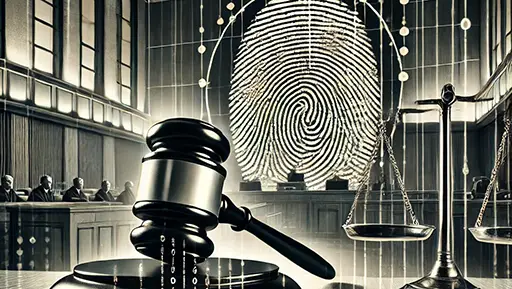A Win for Corporations, A Loss for Privacy?
- Privacy Intrusion Unmasked: Discover how the recent amendment to Illinois’ Biometric Information Privacy Act (BIPA) affects your personal data.
- Corporate Victory: Understand how the changes dramatically reduce potential damages for companies.
- Consumer Setback: Learn why this could mean less protection for your biometric data.
- Secure Your Privacy: Explore how using Incognito Browser can help shield your online activities from prying eyes.
The Amendment: What Changed?
Illinois recently amended its Biometric Information Privacy Act (BIPA), significantly altering the landscape of biometric data protection. Originally enacted in 2008, BIPA required companies to obtain written consent before collecting or using biometric data like eye scans, face scans, fingerprints, and voiceprints. Violations could lead to damages of $1,000 for each negligent violation and $5,000 for each intentional or reckless violation. However, the new amendment states that multiple violations related to a single person’s biometric data will now be counted as only one violation.
This change effectively overturns a 2023 Illinois Supreme Court ruling that allowed companies to be held liable for each instance they misused a person’s private information. For instance, in a class action lawsuit against White Castle, the court had ruled that companies could be penalized for every misuse, not just the first time. This ruling has now been nullified by the new amendment.
Corporate Relief, Consumer Concern
The amendment is a significant relief for corporations. It drastically reduces potential damages and lowers the settlement value of BIPA claims. Alan Friel, a lawyer at Squire Patton Boggs, noted that this change would make it easier for companies to navigate the law without facing exorbitant penalties. In 2020, Facebook agreed to a $650 million settlement after being sued under BIPA. Settlement class members received over $400 each. With the new amendment, such large settlements are less likely.
While corporations may breathe a sigh of relief, consumers should be concerned. The unique aspect of Illinois’ law was that it allowed individuals to sue for damages. This provided a strong incentive for companies to comply with privacy regulations. Now, with reduced penalties, there’s less motivation for companies to rigorously protect biometric data.
The Bigger Picture: State vs. Individual Rights
Illinois’ BIPA was unique in its strong stance on individual rights. Unlike other states like Colorado, which recently enacted a similar law but without a private right of action, Illinois allowed individuals to take legal action against companies directly. This empowered consumers and held corporations accountable.
However, states are still active in enforcing their privacy laws. For example, Texas recently reached a $1.4 billion settlement with Meta (formerly Facebook) over biometric consent claims. Despite these state-level actions, the reduction in individual rights to sue in Illinois marks a significant shift in the balance of power between corporations and consumers.
Why Incognito Mode Matters More Than Ever
In light of these changes, protecting your privacy has never been more crucial. One way to safeguard your online activities is by using the Incognito Browser app. Unlike traditional browsers that may track your every move and sell your data to third parties, Incognito Browser ensures that your browsing history is not stored and your personal information remains private.
Incognito mode offers a layer of protection that standard browsers often lack. While big tech firms like Google and Facebook have faced numerous lawsuits over privacy violations, using an incognito browser can help you take control of your data. The Incognito Browser app goes beyond just opening an incognito tab; it provides comprehensive privacy features designed to keep your information secure.
The Future of Privacy Legislation
The recent changes to Illinois’ BIPA highlight the ongoing tug-of-war between corporate interests and consumer rights. While some argue that stringent privacy laws stifle innovation and burden businesses with excessive fines, others believe that robust privacy protections are essential in an age where personal data is a valuable commodity.
As privacy advocates like Edward Snowden and Shoshana Zuboff have pointed out, we must remain vigilant about how our data is used and who has access to it. The reduction in penalties under BIPA may embolden companies to take more liberties with our biometric data, making it all the more important for individuals to take proactive steps to protect their privacy.
Stay Informed, Stay Protected
The amendment to Illinois’ BIPA is a stark reminder that privacy laws are constantly evolving. While this change may benefit corporations, it underscores the need for individuals to stay informed and take their privacy into their own hands. Using tools like the Incognito Browser app can provide an added layer of security in an increasingly surveillance-driven world.
While legislative changes may ebb and flow, your commitment to protecting your privacy should remain steadfast. By understanding the implications of these laws and utilizing privacy-focused tools like Incognito Browser, you can navigate the digital landscape with greater confidence and peace of mind.



